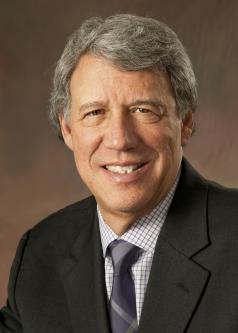T14 Law School Professor Who Made It A Habit To Drop The N-Word Has A Change Of Heart
I mean, it's 2019 and someone is only now understanding the harm of that particular word, but at least the last horse crossed the finish line.

Geoffrey Stone (Image via University of Chicago)
I guess this is a victory for the guilt (some) white people feel when they’ve been called a racist, or at least when they’ve been publicly called out. As we reported earlier this week, University of Chicago Law professor Geoffrey Stone has a tradition of using the N-word in his First Amendment class as part of a discussion about fighting words. Though his student evaluations were littered with concerns about the dubious educational practice, for years Professor Stone continued to drop the N-word in class.
Then law student David Raban called Professor Stone out for the practice in an op-ed. Suddenly what had only been talked about between black law students — Raban says there was a whisper network of the Black Law Student Association (BLSA) warning students of the practice which led to a “widespread flight of Black students” from Professor Stone’s class — was pushed out into the open where the backlash could truly begin.

Is The Future Of Law Distributed? Lessons From The Tech Adoption Curve
There were the — apparently necessary — protests. And yesterday Professor Stone met with members of BLSA to discuss the issue. During the conversation with BLSA, Stone did not commit to shying away from the practice. But something must have compelled him to have a change of heart. When he taught Constitutional Law II: Freedom of Speech (the class where he used the word) later that afternoon, sources say Professor Stone revealed he will no long use the N-word in class:
[A]t the beginning of class [yesterday] afternoon, he said that he was persuaded by those at the talk [with BLSA] that the harm and hurt caused by the n-word outweigh any educational value he thinks it has. He said that he will no longer be using it in class.
When reached for comment, Professor Stone explained his rationale for changing his pedagogical approach:
I teach my students that free speech is about listening and learning, as well as about speaking. My conversation with the African American students convinced me that the hurt and distraction caused by use of the word in the story are real and to be taken seriously. As a teacher, my goal is to be effective and I decided that use of the word in that story isn’t sufficiently important to justify the hurt and distraction it causes. For me, this is a great example of why free speech is important. It enables us to learn from each other.
Sponsored

Legal AI: 3 Steps Law Firms Should Take Now

The Business Case For AI At Your Law Firm


Early Adopters Of Legal AI Gaining Competitive Edge In Marketplace

Navigating Financial Success by Avoiding Common Pitfalls and Maximizing Firm Performance
I mean, I can’t believe it is 2019 and someone is only now understanding the harm of that particular word, but at least the last horse crossed the finish line. And this is certainly a good(ish) outcome in that students will no longer be subjected to the gratuitous use of an offensive term. But, the University’s response has been decidedly lackluster. In a statement to The College Fix, Jeremy Manier, assistant vice president of communications, hid behind broad concepts of academic freedom:
“Faculty members have broad freedom in the choice of ideas to discuss in the classroom and in their expression of those ideas, and students are free to express their views on those subjects,” he said via email.
“The University of Chicago is deeply committed to the values of academic freedom and the free expression of ideas, and to fostering a diverse and inclusive climate on campus. We believe universities have an important role as places where controversial ideas can be proposed, tested, and debated by faculty and students,” Manier said.
Compare and contrast Chicago’s handling of the situation, which is completely callous to the harm using such a hateful word does, with that of Emory Law, which dealt with a similar situation last semester. At Emory, there was no equivocation about the professor’s freedoms, just support for the students and a clear commitment to diversity. At Chicago, there was a deferment of responsibility and zero acknowledgement the practice is hurtful for African American students.
The University of Chicago’s response to the controversy tells you all you need to know about its educational priorities.
Sponsored

Navigating Financial Success by Avoiding Common Pitfalls and Maximizing Firm Performance

Is The Future Of Law Distributed? Lessons From The Tech Adoption Curve
 Kathryn Rubino is a Senior Editor at Above the Law, and host of The Jabot podcast. AtL tipsters are the best, so please connect with her. Feel free to email her with any tips, questions, or comments and follow her on Twitter (@Kathryn1).
Kathryn Rubino is a Senior Editor at Above the Law, and host of The Jabot podcast. AtL tipsters are the best, so please connect with her. Feel free to email her with any tips, questions, or comments and follow her on Twitter (@Kathryn1).







